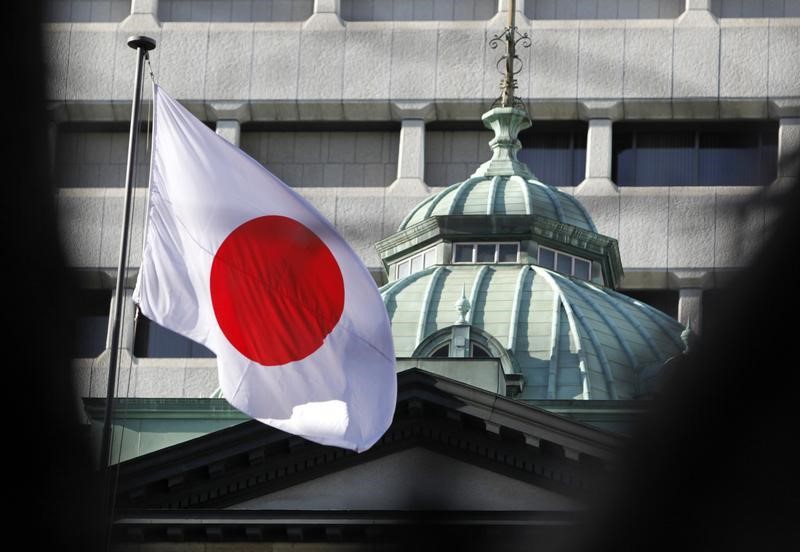(Bloomberg) -- The Bank of Japan will lower its short-term interest rate to -0.3% from -0.1% in September to head off risks posed by an expected Federal Reserve rate cut, JPMorgan. said in a research note.
Fed cuts are now expected in September and December after escalating U.S.-China trade tensions and President Donald Trump’s threat of tariffs on Mexico have raised the risk that global growth will deteriorate, said Hiroshi Ugai, chief Japan economist at JPMorgan.
That will pressure the BOJ to act to prevent a narrowing of the rate spread with the Fed at a time when the yen will be strengthening and economic growth and inflationary pressures deteriorating, Ugai says. JPMorgan will revise down its economic growth outlook next week after Japan releases revised gross domestic product figures for the first quarter, he said.
The BOJ would risk a sharp strengthening of the yen if it didn’t respond to the Fed’s move, Ugai said.
Even before the recent U.S.-China flareup, a growing number of economists had begun to predict the BOJ would undertake additional monetary easing in the face of sagging growth and inflation. But relatively few thought that easing would take the form of a cut to the negative rate, which has been broadly unpopular in Japan.
The BOJ is likely to offer some compensation to banks to alleviate the squeeze on their profits from the lower rate, Ugai said.
JPMorgan had previously expected the next BOJ policy change would be to extend its pledge to keep interest rates extremely low, Ugai said.
The bank doesn’t expect the BOJ to cut its target for the yield on 10-year Japanese government bonds or to increase its purchases of exchange-traded funds in September, but if the U.S.-China trade talks completely fall apart and trigger a plunge in stock prices, the BOJ may expand its purchases of ETFs in July from 6 trillion yen to 8 trillion yen annually, he said.
"When cutting the short-term policy rate, the BOJ might allow the 10yr yield to be lowered to around -0.2% at max, the lowest bound of the range around the 0% target," Ugai wrote.
